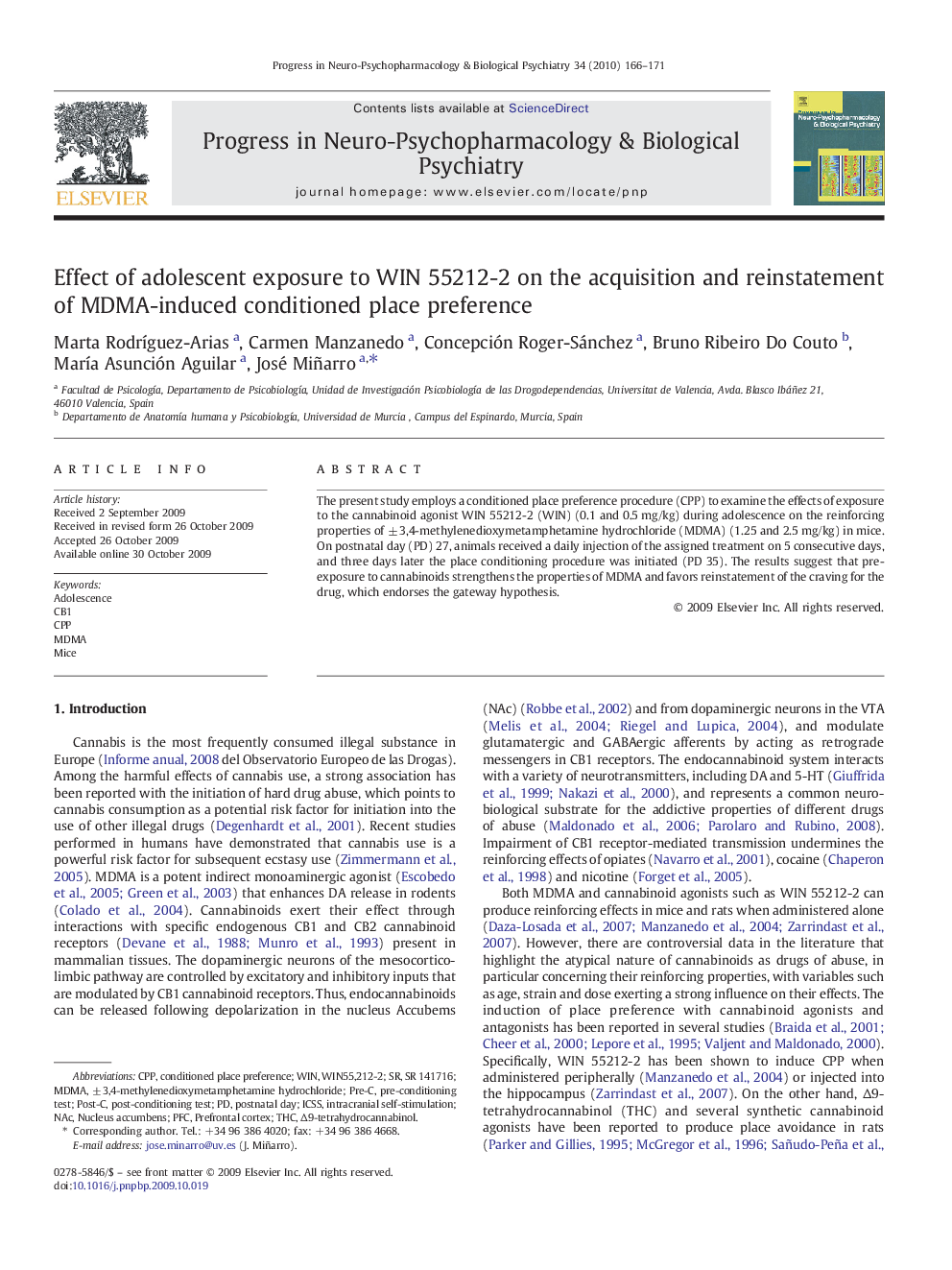| Article ID | Journal | Published Year | Pages | File Type |
|---|---|---|---|---|
| 2565186 | Progress in Neuro-Psychopharmacology and Biological Psychiatry | 2010 | 6 Pages |
Abstract
The present study employs a conditioned place preference procedure (CPP) to examine the effects of exposure to the cannabinoid agonist WIN 55212-2 (WIN) (0.1 and 0.5 mg/kg) during adolescence on the reinforcing properties of ± 3,4-methylenedioxymetamphetamine hydrochloride (MDMA) (1.25 and 2.5 mg/kg) in mice. On postnatal day (PD) 27, animals received a daily injection of the assigned treatment on 5 consecutive days, and three days later the place conditioning procedure was initiated (PD 35). The results suggest that pre-exposure to cannabinoids strengthens the properties of MDMA and favors reinstatement of the craving for the drug, which endorses the gateway hypothesis.
Related Topics
Life Sciences
Neuroscience
Biological Psychiatry
Authors
Marta Rodríguez-Arias, Carmen Manzanedo, Concepción Roger-Sánchez, Bruno Ribeiro Do Couto, María Asunción Aguilar, José Miñarro,
